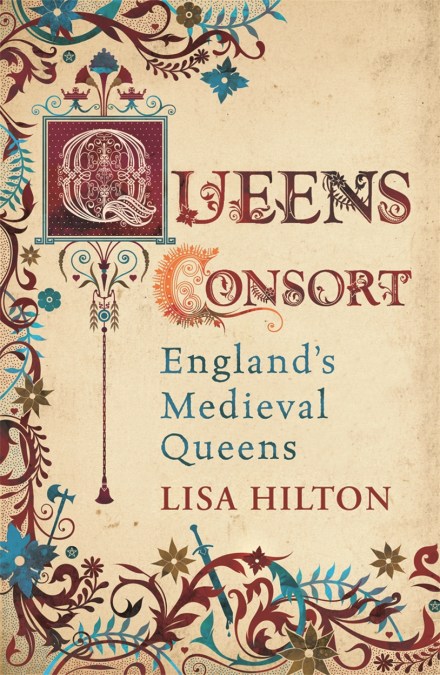England from the perspective of its consort queens – a distaff history of the nation from 1066 to 1503.
England’s medieval queens were elemental in shaping the history of the nation. In an age where all politics were family politics, dynastic marriages placed English queens at the very centre of power – the king’s bed. From Matilda of Flanders, the Conqueror’s queen, to Elizabeth of York, the first Tudor consort, England’s queens fashioned the nature of monarchy and influenced the direction of the state. Occupying a unique position in the mercurial, often violent world of medieval state-craft, English queens had to negotiate a role that combined tremendous influence with terrifying vulnerability.
Lisa Hilton’s meticulously researched new book explores the lives of the twenty women who were crowned queen between 1066 and 1503, reconsidering the fictions surrounding well-known figures like Eleanor of Aquitaine and illuminating the lives of forgotten figures such as Adeliza of Louvain. War, adultery, witchcraft, child abuse, murder – and occassionally even love – formed English queenship, but so too did patronage, learning and fashion. Lisa Hilton considers the evolution of the queenly office alongside intimate portraits of the individual women, dispelling the myth that medieval brides were no more than diplomatic pawns.
England’s medieval queens were elemental in shaping the history of the nation. In an age where all politics were family politics, dynastic marriages placed English queens at the very centre of power – the king’s bed. From Matilda of Flanders, the Conqueror’s queen, to Elizabeth of York, the first Tudor consort, England’s queens fashioned the nature of monarchy and influenced the direction of the state. Occupying a unique position in the mercurial, often violent world of medieval state-craft, English queens had to negotiate a role that combined tremendous influence with terrifying vulnerability.
Lisa Hilton’s meticulously researched new book explores the lives of the twenty women who were crowned queen between 1066 and 1503, reconsidering the fictions surrounding well-known figures like Eleanor of Aquitaine and illuminating the lives of forgotten figures such as Adeliza of Louvain. War, adultery, witchcraft, child abuse, murder – and occassionally even love – formed English queenship, but so too did patronage, learning and fashion. Lisa Hilton considers the evolution of the queenly office alongside intimate portraits of the individual women, dispelling the myth that medieval brides were no more than diplomatic pawns.
Newsletter Signup
By clicking ‘Sign Up,’ I acknowledge that I have read and agree to Hachette Book Group’s Privacy Policy and Terms of Use
Reviews
Reading this stimulating pageant of a book... one frequently shudders at the fate of the women in bygone ages
As Hilton displays so effectively through the depth of her research, no two queens were the same... a fascinating read
A fascinating study
Juicy tome exploring what it really meant to be married to a medieval king
As Hilton displays so effectively through the depth of her research, no two queens were the same... a fascinating read
A fascinating study





